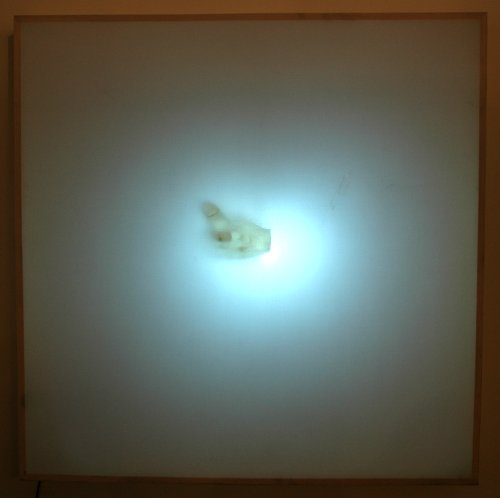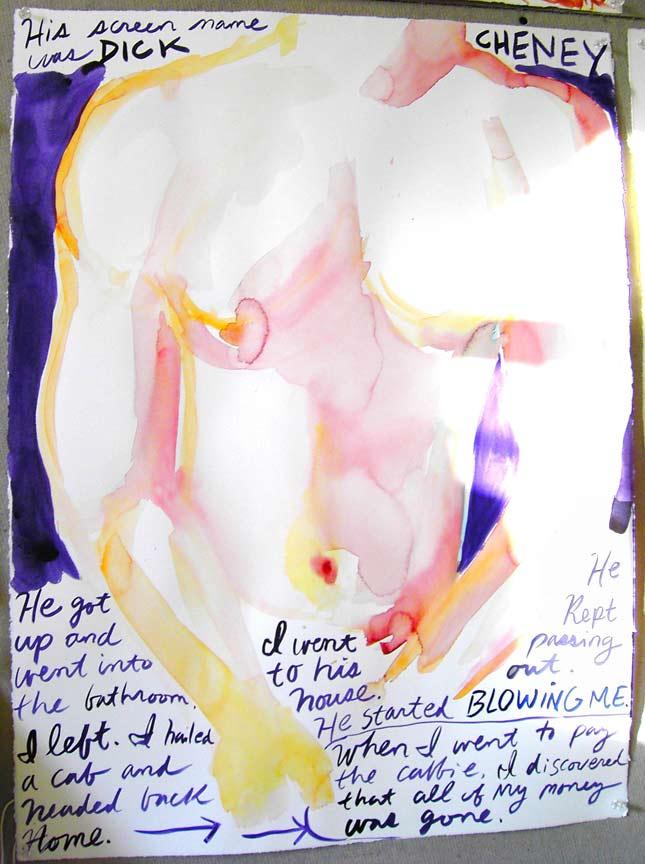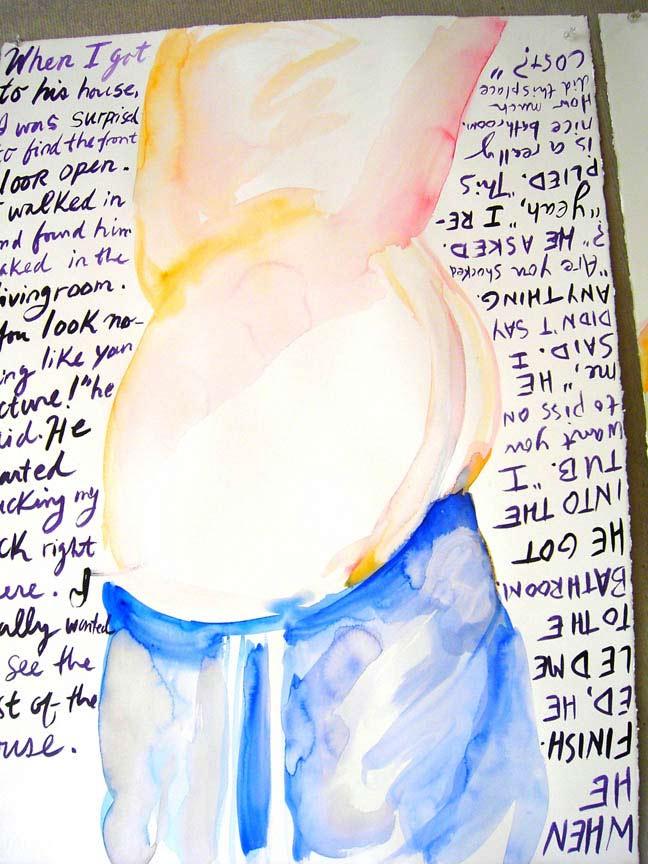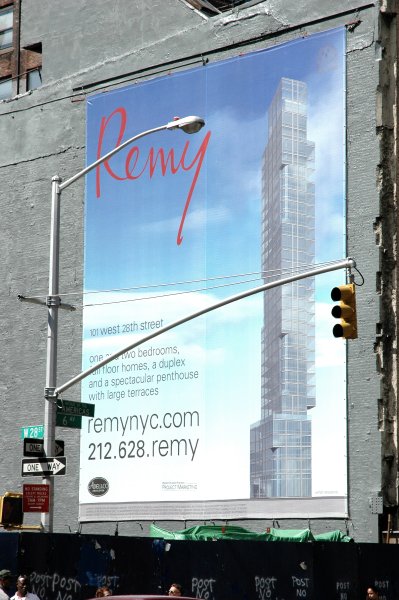[this editorial is too good to stay in the Bronx; Barry reformatted it from a PDF so I could upload it here]
THE RIVERDALE PRESS Thursday, May 11, 2006
---------------------------------------------------------------------------------------------
The return of the censors
In 1988, Chicago police arrested a painting; last week, New York City jailed an entire art exhibit.
In both cases, the offending art was student work on display in the year-end show that is a college art departmentâs equivalent of a thesis.
In both cases, the authorities acted precipitately and in violation of the fundamental right of artists to express themselves and of our fundamental right to make up our own minds.
In both cases the academic institutions that should have defended their students and the faculty that mentored them instead beat a craven retreat.
It took a federal court to rebuke the Chicago authorities for confiscating David Nelsonâs mocking portrait of the cityâs late mayor Harold Washington clad only in a bra and panties.
Will it take a court to stand up for the students of Brooklyn College, who, shortly after celebrating what they thought was a successful opening, saw months of work sequestered?
Last Thursday, Brooklyn Parks Commissioner Julius Spiegel abruptly locked up the war memorial in Cadman Plaza Park, which for the last five years has served as an art gallery and the venue for Brooklyn Collegeâs year-end art exhibit.
The commissioner-turned-critic apparently didnât like the image of a penis with homoerotic overtones or a video on Biblical themes that included sexually-charged footage of Eve in the garden. Next thing the students knew, a locksmith was changing the locks on the gallery, effectively impounding their work.
It took the college the better part of a day to decide how to respond. Then it issued a statement trying to have it both ways: âIn keeping with the public nature of the space, as well as its position as an honored war memorial, Brooklyn College has respectfully decided to move the entire student exhibit to our campus. Brooklyn College has a long tradition of educating fine artists. Throughout, the administration of the College has supported our studentsâ rights to freedom of artistic expression. We are proud to display our student art here at the College.â
Not good enough, said the students. Told the exhibit would be moved to the college library, Marni Kotak, the studentsâ spokeswoman, noted that many of the 18 works were site-specific and others were too large to be exhibited effectively in the library.
âClearly the administration of BC is thinking only of covering themselves ⊠rather than taking any kind of stand at all to defend the hard work of us students,â she wrote in an e-mail. âWe are generally infuriated by this tactic and are determined to either have our show reopened at the War Memorial or hold BC responsible for covering all costs for moving and reinstalling such an exhibition in another appropriate venue.â
According to city Parks Department spokesman Warner Johnston, the city had an âexplicit agreement with the college that because itâs a war memorial and public space, it had to be appropriate for families.â Asked for a copy, he paused, then said there was no written agreement, but a verbal understanding. Colleen Roche, the head of a public relations firm hired by the college, refused to answer questions about the agreement and whether, if it existed, the art department or anyone in the current administration knew of it. The students say no one ever told them about it.
In any event, it is sad to see an institution of higher learning forget the lessons of the past. Only seven years ago, the city was rebuked for trying to intimidate and punish another Brooklyn institution, when a federal judge told Mayor Rudolph Giuliani that he couldnât force the Brooklyn Museum to abandon the âSensationâ show.
The Giuliani administration then made an argument much like the one the Bloomberg administration is making now. Rejecting the contention that the museum broke its contract with the city to educate school children by showing work not fit for children to see, Judge Nina Gershon wrote, âThere is no federal constitutional issue more grave than the effort by government officials to censor works of expression and to threaten the vitality of a major cultural institution as punishment for failing to abide by governmental demands for orthodoxy.â
The job of a university is to educate not only its students but the society it serves. In failing to stand up for its studentsâ exhibit, Brooklyn College lost an opportunity to explain the role and the nature of art. And it failed in an even more important task: to tell New Yorkers that itâs their job as citizens to judge public expression, and that no matter how provocative or potentially offensive it may be, the government has no business intruding on our ability to do so.



